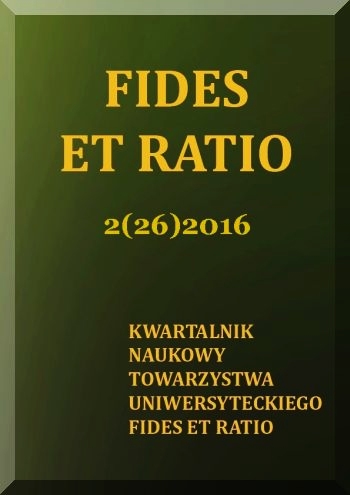Abstract
The article presents the idea that the man reconciled with God and with himself does not demand the right to euthanasia. Given the fact that euthanasia does not advocate only atheists but also believers, it can be assumed that despite the existing restrictions resulting from the catalog of the commandments, they distanced themselves from God. Faith in God's love and solace in prayer ceased to build hope, instead, appeared fear of suffering, loneliness, the death of - escape. Man leaning on the firmament of faith, reconciled with himself and God, subjected to his will. In an act of conscious and independent decision chooses to live to the end. On the other hand, can fully enjoy the achievements of modern medicine in relieving the pain, the right to pastoral care, dignity.
References
Brehant J. (1990), Thanatos, chory i lekarz w obliczu śmierci, tłumaczenie U. Sudolska, Warszawa: Instytut Wydawniczy PAX.
Jak umierać – debata o eutanazji:
http://www.miesiecznik.znak.com.pl/7132014debata-o-eutanazji-z-udzialem-ks-jana-kaczkowskiego-michala-krolikowskiego-i-pawla-lukowa-prowadzenie-dominika-kozlowskajak-umierac/
Jan Paweł II (1984), List apostolski Salvifici doloris: http://www.opoka.org.pl/biblioteka/W/WP/jan_pawel_ii/listy/salvifici.html
Jan Paweł II (1995), Encyklika Evangelium Vitae, Watykan.
Macharski F. kard. (2001), słowo wstępne w: Chrześcijanin wobec eutanazji, red. nauk. Ks. K. Gryz, ks. B. Mielec, Kraków:Wydawnictwo św. Stanisława BM Archidiecezji Krakowskiej
Machinek M. ks. (2004), Śmierć w dyspozycji człowieka. Wybrane problemy etyczne u kresu ludzkiego życia, Olsztyn: Wydawnictwo „Hosianum”.
www.kslp.vti.pl/spotkania-z-etyka/komercjalizacja.html
www.niedziela.pl/artykul/12453/nd/Wiara-selektywna.
